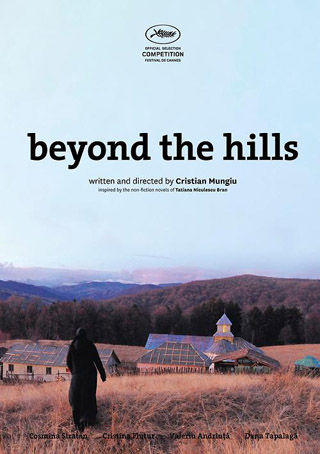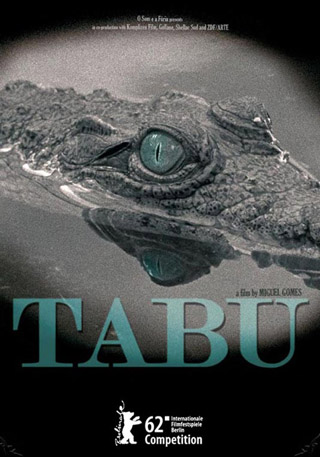For the cover of the new Philadelphia Weekly, Matt Prigge interviews Sharon Pinkenson, “the executive director—or, more colloquially, film commissioner—of the Greater Philadelphia Film Office.” Why? Two reasons. First, she “took a fledgling, semi-professional operation and turned it into a thriving machine that brought in scores of major and indie productions—and, with them, a plethora of jobs.” Second, “in honor of her 20th anniversary at the Film Office, the Philadelphia Film Society has renamed its Philadelphia Film Festival prize for the best Philly-based entrant the Sharon Pinkenson Award for Best Local Feature Film.” And as a sidebar, Matt Prigge presents a “Highly Subjective List of Six of the Best Films Shot in Philadelphia.”
And then there’s the other sidebar: “What’s Hot at the 2012 Philadelphia Film Festival.” It opens today with David O. Russell’s Silver Linings Playbook and runs through October 28, and the Philadelphia City Paper‘s got a batch of capsule previews as well. A sampling from both weeklies, juiced up a bit with reviews that have appeared throughout this fall festival season:
Matt Prigge on Beyond the Hills: “Cristian Mungiu—of the great Romanian abortion saga 4 Months, 3 Weeks and 2 Days—finally returns with a follow-up, taking a free interpretation of a true story. Alina (Cristina Flutur) arrives at a remote Orthodox convent to visit Voichita (Cosmina Strata), her friend from an orphanage who has since found God. Alina has not, and her attempts to free Voichita from the ascetic life gradually lead to unmanageable behavior, and attempts by clergy to contain her lead to tragedy.”
“Without giving too much of the plot away,” writes David Jenkins in Little White Lies, “the later machinations closely mirror those in both Powell and Pressburger’s Black Narcissus and Lars von Trier’s Dogville, with frenzied power struggles layering up by the scene as it soon becomes clear that Alina is not giving up her woman. Like 4 Months…, Beyond the Hills also eludes easy genre categorization, flitting between social realist slice-of-life drama, heartbreaking gay romance, possession horror and, in its sublime—and extremely Romanian—final shot, sardonic police procedural. Mungiu’s shooting style is extraordinarily restrained and precise and his sense of humor as dry as a bucket of Martini.”
“Cosmina Stratan and Cristina Flutur won twin Best Actress awards at Cannes for their portrayals of Voichita and Alina respectively, and Mungiu garnered Best Screenplay honors there as well,” notes Tristan Johnson in Cine-File. “The accolades do not lie.” More from Forrest Cardamenis (Film Society of Lincoln Center), Robert Koehler (Cinema Scope), Alec Kubas-Meyer (Criticwire), Blair McClendon (Criticwire), Benjamin Mercer (Reverse Shot), James Rocarols (Critic’s Notebook), Nick Schager (Slant, 3.5/4), and Scott Tobias (AV Club, A-). For the Playlist, Christopher Bell reports on the NYFF press conference.
Gary M. Kramer in the City Paper: “Writer/director Antonio Méndez Esparza’s Here and There is a stunning debut. The film opens with Pedro (Pedro de los Santos) reuniting with his family in a Mexican mountain town after years of working in America. This remarkable, unsentimental drama—told from the Mexican side of the border—beautifully captures the rhythm of Pedro’s life and the dynamics of his close-knit family.”
“Here and There isn’t concerned with the drugs and bloodshed that forces Mexicans from their homeland,” writes Ed Gonzalez in Slant. “Not only is it uninterested in the politics of immigration, it deliberately downplays the anguish of its characters’ resigned lives, and to such an extent that it seems to emanate from a negative void. The film’s quiet agenda is to convey, through its indecorous aesthetic and storyline and amateur performances, the unforgiving banality and lack of financial opportunity that drives Mexicans to America. It’s a confident vision, but its aversion to sentiment has the intended but unfortunate effect of making the characters’ disconnects our own.”
“Here and There won the Critics’ Week Grand Prize at Cannes in May,” notes Benjamin Mercer in Reverse Shot, “and it’s easy to see why this might be branded a critics’ film, since in addition to moving rather deliberately, it takes so many little detours from the expected—something those who scrutinize narrative features for a living (or long-haul hobby) will frequently come to value over more conventional dramatic satisfactions. There’s nothing affected or reactionary here, though—the debut feature by Esparza (the writer-director is a graduate of the film program at Columbia University) displays an unhurried human generosity that’s too often lacking in global life-on-the-margins cinema, with its often suffocating atmosphere of determinism. What’s heartbreaking in it, and the way it sinks in, feels novel: We worry not so much about this family’s survival as we do that what we’ve just witnessed—Pedro’s time at home—might by necessity be a break from the routine.”
More from Christopher Bourne (Twitch), Corey O’Connell (FSLC), and Elise Nakhnikian (House Next Door).
Matt Prigge: “Portugal’s Miguel Gomes is one of the more unusual structuralists working in cinema today. The three-hour Our Beloved Month of August starts as a shapeless documentary that slowly evolves into a well-crafted drama. Tabu isn’t as radical, but it’s close: The first half is a vaguely dark comedy about a middle-aged woman dealing with the almost certainly paranoid ravings of her elderly neighbor. When this old bitty dies, the second half—narrated by Gomes himself, his being the only voice we hear—delves into her youth in Africa, finding her a vital spirit embroiled in a high-stakes romance.”
“Matching the destiny of an entire colonial endeavor which affected millions to one star-crossed affair may seem blithe to some, but it’s entirely in keeping with the film’s theme of rueful old age regarding careless youth, true to the rule whereby former thoughtless confidence giving way to shameful regret,” writes Nick Pinkerton for the Voice.
Jeff Reichert in Reverse Shot: “Like the film artist who is perhaps his closest brethren in aesthetic spirit, Thailand’s Apichatpong Weerasethakul, Portuguese filmmaker Miguel Gomes, working on the opposite side of the world, uses the cinematic apparatus to capture, refract or simply conjure out of nothing portions of the fabulous magic lurking at the seams of mundane existence. Both artists remain committed to the sorcery of storytelling, the transmogrification of form, and, perhaps, most importantly, retain the idea that, even amidst wild formal pyrotechnics, movies should still be (gasp) fun. Both are convinced that there is always some combination of image, sound, and story just waiting to be discovered and have, repeatedly through their careers, uncovered it for their audiences. Their films have tickled the festival circuit-set, but not because of their difficulty or opacity. What film lover wouldn’t want to sit down with a delight like Tabu after a day spent slogging through grim Austrian miserablism.”
David Bordwell: “In a film paying homage to Murnau (a forbidden romance as in Tabu, the name Aurora recalling Sunrise), Gomes has apparently also sought to give us something like the ‘part-talkies’ of 1928-1929. Those films had full-blown dialogue scenes (as in Part I) and other scenes containing only music and effects (Part II), relieved by synchronized musical numbers (a sequence showing Mario’s band performing by the pool). Tabu recovers something of the strangeness of those transitional films, notably Sunrise itself, while remaining highly contemporary. It knows that we can turn to tradition when we want to rekindle a romanticism that would look high-flown today.”
More from John Semley (Slant, 4/4) and R. Emmet Sweeney (Movie Morlocks). And Josef Braun interviews Gomes.
For news and tips throughout the day every day, follow @KeyframeDaily on Twitter and/or the RSS feed. Get Keyframe Daily in your inbox by signing in at fandor.com/daily.






